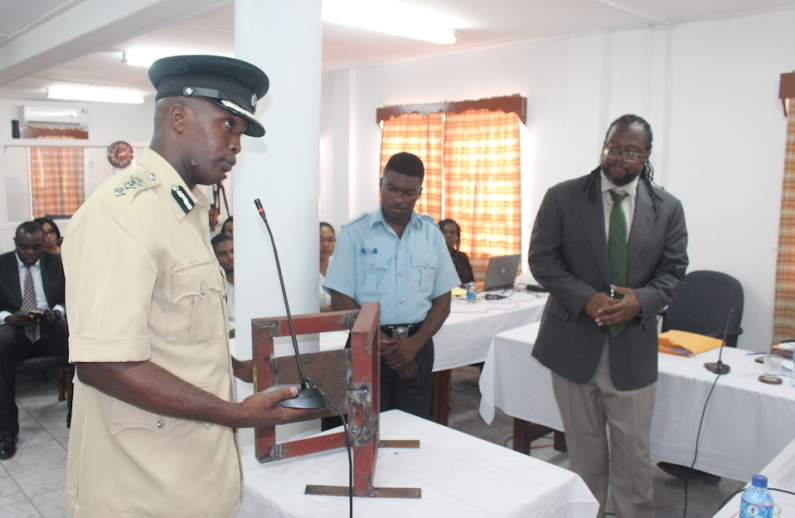
Deputy Director of Prisons, Senior Superintendent Gladwin Samuels, took the stand at the Commission Inquiry into the deadly Camp Street jail unrest on Tuesday afternoon and denied that he ever give instructions for the doors to be locked to the cell where prisoners had set a fire.
The Deputy Director who holds a Degree in Social Work and is about to complete his Masters in Public Management had been fingered by a number of prisoners who testified before the Commission as giving instructions to lock the prison doors while inmates were trapped in a fire.
He denied those accusations and told the Commission that many prisoners do not like his strict style of management and so many of them would have come before the Commission with stories that are untrue.
Mr. Samuels explained to the Commission that he is a trained Social Worker and every day that he went to work at the Camp Street Prison, it was to make the prison environment a better place.
He said prisoners who want to be honest could come before the Commission and speak the truth about what took place on March 3rd, when 17 prisoners lost their lives. But he noted that many of them might be afraid of attacks from other prisoners once they were truthful about the occurrences in the jailhouse.
“The only way some of them might come here and be totally honest might be if they are offered permanent residence in the U.S and where they might be able to live safe for the rest of their lives. Because many fear that if they come and speak the truth they could be attacked when they go back or sometime after”, he told the Commission.
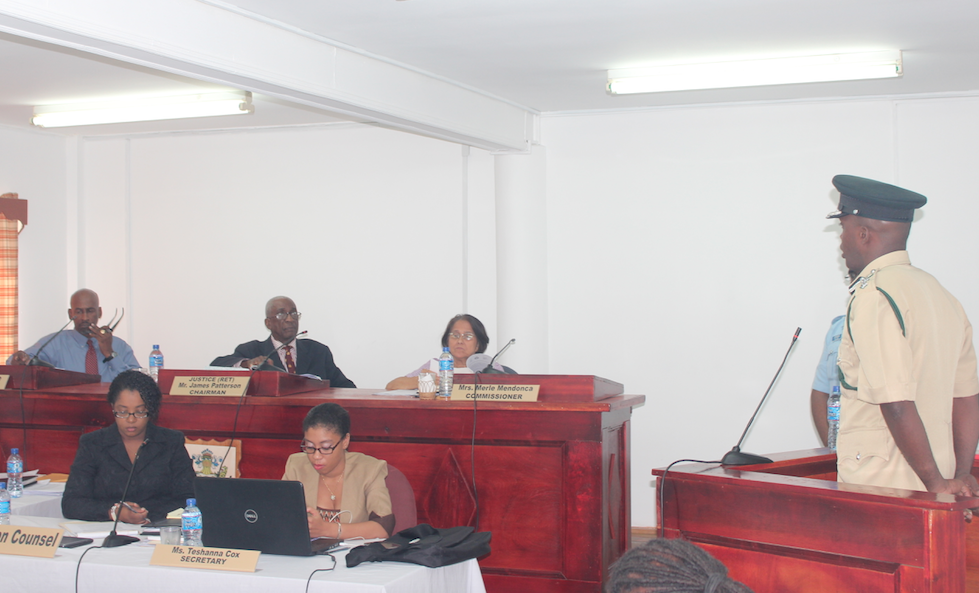
At one stage during his testimony, he illustrated to the Commission the way prison doors were locked. The special type of lock that is used on prison doors was brought to the Commission for him to explain how it could be locked and also possibly sabotaged by inmates.
The Deputy Director explained that when the first set of fires were lit by inmates in the prison on the night of March 2, 2016, he was in Bartica because he was heading to the Mazaruni Prison on official duties. He said once he was informed of the situation and kept up to date, he was instructed by the Acting Director to return to Georgetown the next day to assist with an operation that the Prison Director was putting together.
Mr. Samuels testified that when he returned to the Prison on March 3rd, 2016, a number of inmates were being moved from the Capital Offenses B section, where they were being held following the night’s protests and fires. He said he recalled seeing members of the task force in the yard removing a prisoner who was protesting his removal. Samuels said when the first fire erupted in the Capital B section, prison officers rushed in and extinguished the fire and got inmates out. A large hole was spotted in the partition wall that separated the two sections and officers were convinced that some prisoners had already moved to that side of the prison from the other side.
He told the Commission that once that fire was extinguished, he returned to the prison yard as prisoners int he Capital offenses A section became rowdy and started to loudly protest.
When the fire broke out in that section, Samuels testified that all efforts were made to open the cell door to get the prisoners out. He said there was thick black smoke and fire coming out from the cell. He said at first, prison officers tried the keys but that failed and he eventually instructed a civilian worker of the prison to use a power cutter to cut through the lock.
The efforts of the man failed as he complained that the heat was too much for him to cut through the steel door. The fire service arrived and started their fire fighting efforts along with prison officers.
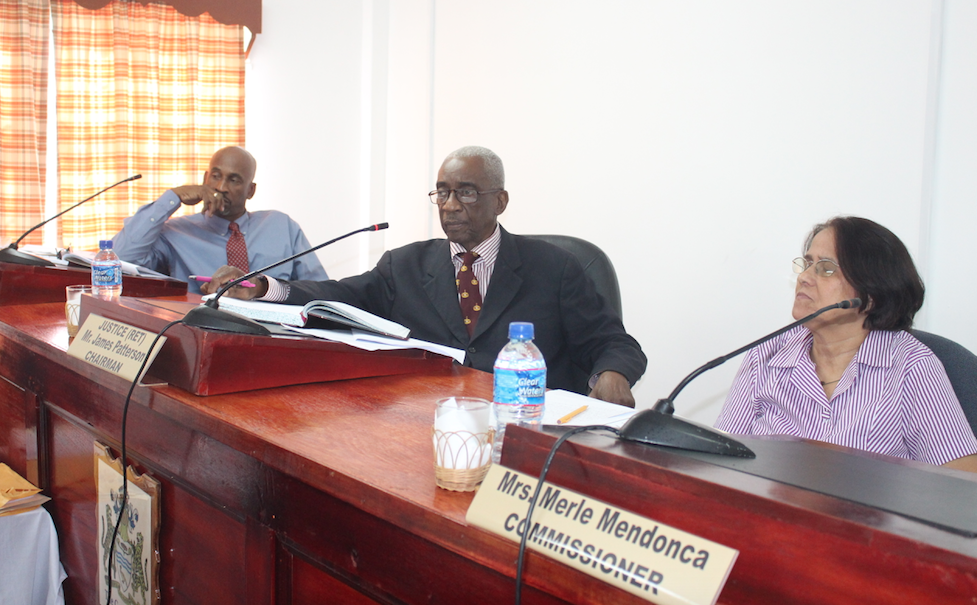
Samuels testified that by that time, other inmates in other sections had started to loudly protest and throw objects and threats at prison officers.
He said some were shouting that he was the cause for the deaths and at that time the Commander of A Division, Clifton Hicken who had arrived with other senior police officers, told him that it would be best for him to leave the compound because of the mounting threats.
Mr. Samuels told the Commission that there was no tear gas used on the 3rd of March during the fire or protests. He also testified that none of the prison officers, including himself, used their firearms.
Being led by Prison Attorney, Selwyn Pieters, Samuels explained to the Commission that his life has been changed completely since the incident. He said he is forced to deal with persons looking at him in a different manner thanks to the “untrue stories” that were peddled about him in the media and at the Commission hearings.
“Persons who know me would give a different account of me”, he said.
He said over his years in the prison service, he would have seen efforts by prisoners to smuggle illegal items into the jail house in just about everything.
He recalled seeing a relative of a prisoner attempting to smuggle marijuana into the prison in food. Samuels said it was the strangest case, as the woman had hidden the marijuana in pieces of tripe that was in a meal she had brought for a prisoner. He also recalled an inmate who had gone to court, returning to the prison with two large packages of marijuana hidden in his anus.
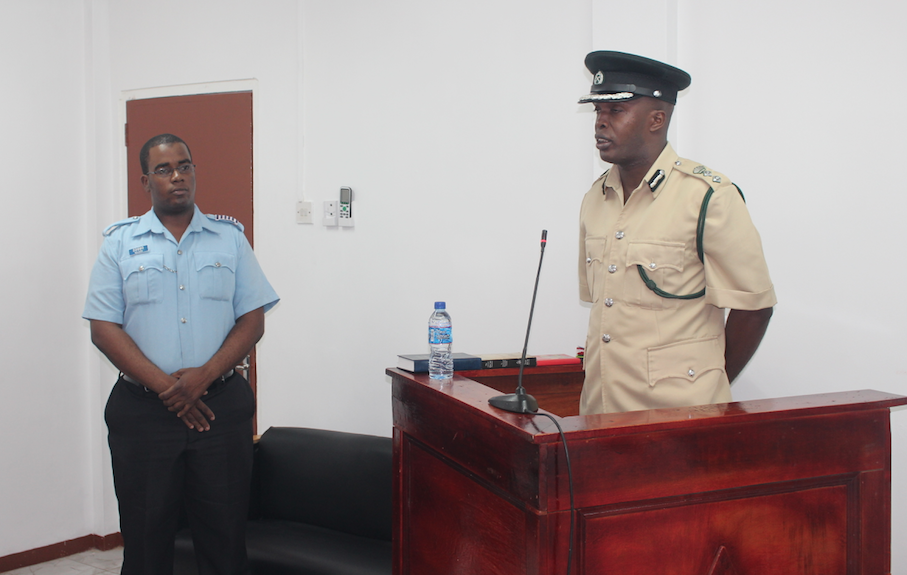
He said there was once a case when a gun was tossed over the prison fence but an inmate was cornered just after he picked it up. Live ammunition was also hurled over the fence.
The Deputy Director said he takes his job seriously and would have never given any instruction that would have caused the lives of prisoners to be lost.
“I go to work to make the prison a better place but now my life has changed”.
He will continue his testimony on Wednesday morning.











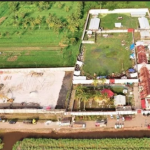
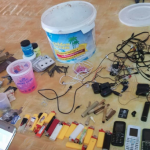
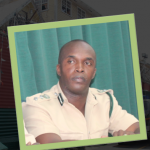
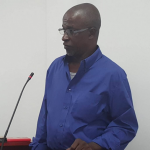


You must be logged in to post a comment Login